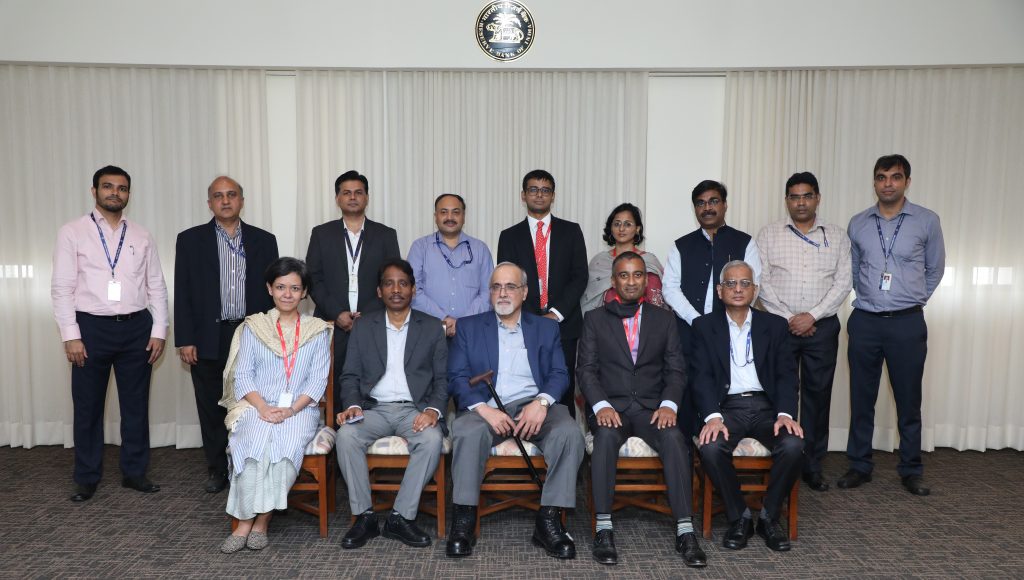RBI Recognises NLSIU’s Support on Regulatory Reform
June 14, 2022
 In 2021, NLSIU had announced a collaboration between its Regulatory Governance Project and RBI’s Regulations Review Authority (RRA 2.0) in streamlining and rationalising the RBI’s regulatory functions. The Reserve Bank of India’s RRA 2.0 was constituted for a period of one year to review regulations, compliance procedures and to streamline regulatory instructions, and was headed by RBI Deputy Governor M Rajeshwar Rao. The Regulatory Governance team collaborated with the RRA 2.0 from July 9, 2021 to April 12, 2022 to assist them in achieving their mandate.
In 2021, NLSIU had announced a collaboration between its Regulatory Governance Project and RBI’s Regulations Review Authority (RRA 2.0) in streamlining and rationalising the RBI’s regulatory functions. The Reserve Bank of India’s RRA 2.0 was constituted for a period of one year to review regulations, compliance procedures and to streamline regulatory instructions, and was headed by RBI Deputy Governor M Rajeshwar Rao. The Regulatory Governance team collaborated with the RRA 2.0 from July 9, 2021 to April 12, 2022 to assist them in achieving their mandate.
Today, RRA 2.0 released a detailed report of its recommendations. In the report, the RBI acknowledged NLSIU’s support on regulatory reform. Commenting on the collaboration with National Law School of India University, Bengaluru, the report stated:
“National Law School of India University (NLSIU), Bengaluru proactively provided their suggestions to RRA 2.0. RRA sought to collaborate with NLSIU and they provided excellent research support and inputs on the specific areas including standardisation of regulatory instruments. NLSIU undertook a comparative study of regulatory issuance process and analysis of instruments used by financial sector regulators in several overseas jurisdictions including the UK, EU, the US, Australia, Singapore and Hong Kong, a framework for different types of instruments issued by domestic regulators containing the legal effect and function of each such instrument, and standard templates of regulatory instruments.
The RRA recommendations on the issuance of regulatory instructions have been enormously benefitted and enriched by the unstinted support provided by the NLSIU team.”
The NLSIU team, which worked under the guidance of Vice Chancellor Dr. Sudhir Krishnaswamy, comprised S. Vivek (Team Lead), Rishika Rangarajan (Research Fellow), Neeti Bhatt (Visiting Fellow), Dakshina Chandra (Research Fellow), and Srijoni Sen (Research Coordinator and Assistant Professor).
NLSIU thanks the RRA 2.0 team for this fantastic opportunity which allowed us to think deeply about regulatory reform, and offer meaningful suggestions to optimise regulatory architecture. Over the next week, we will summarise our broad findings, which may be useful to other regulators as well.

